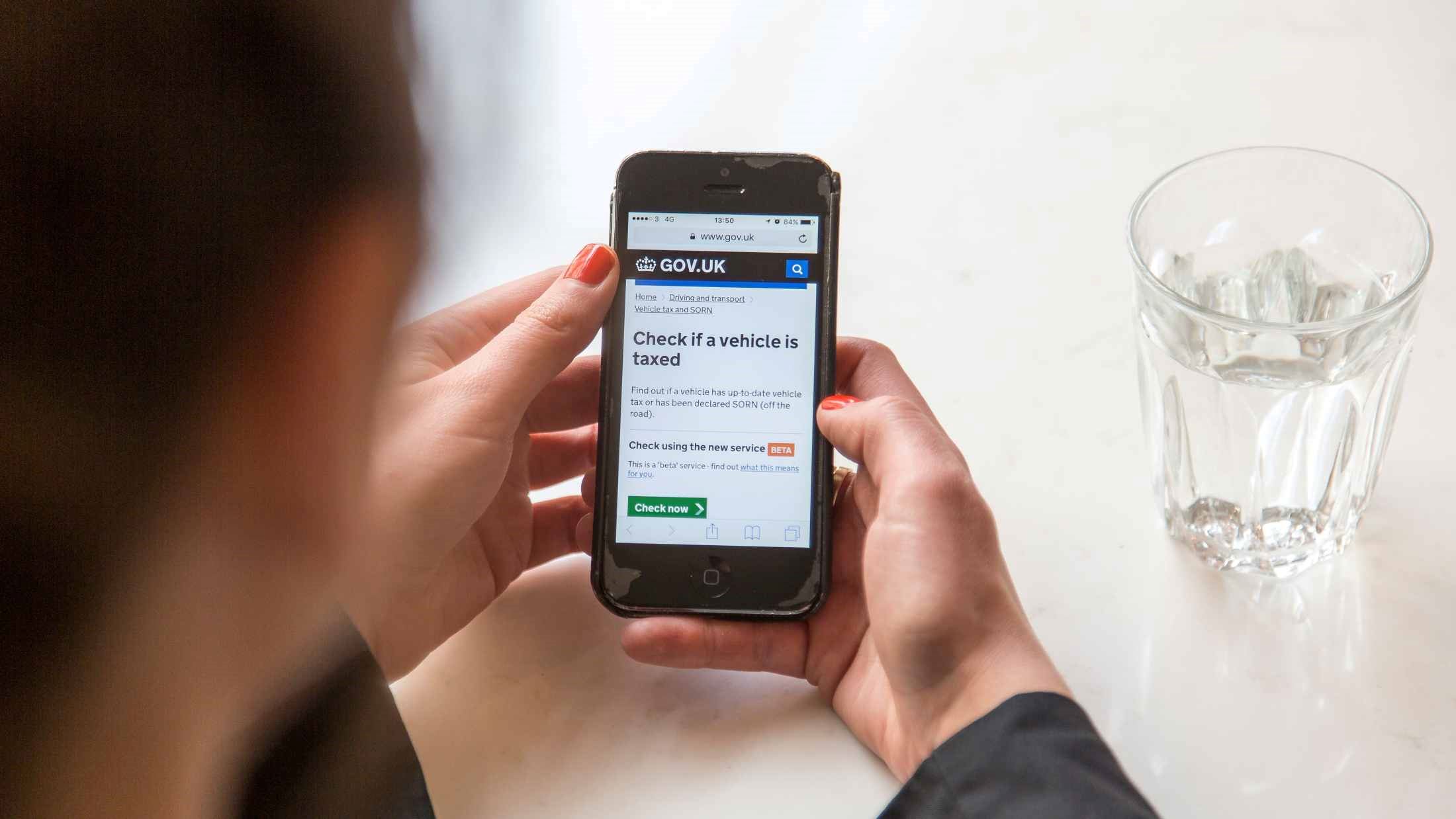Whether you’ve heard it called car tax, road tax or vehicle excise duty these all refer to the same requirement for drivers in the UK.
What you have to pay will depend on your type of vehicle and its emission levels, so it’s essential to work out the right rate for your car before you start driving on the UK’s roads.
To check if a vehicle is taxed, this guide will break down how this system works in the UK. We will also walk you through how to check car tax rates for your vehicle and see which types are exempt. This may help you decide on your next car as this can be a big part of its running costs.
How is car tax calculated?
Are you looking into upgrading to a new vehicle and wondering how is road tax calculated? When browsing cars, it’s worth knowing how much to tax your car. This is largely based on your car’s carbon dioxide emissions and its date of first registration.
You may also have heard about a newer type of vehicle tax and asked how is company car tax calculated? This rate was designed to encourage organisations to buy fuel-efficient driving options and covers any cars which fall into bands of 0-50 grams of CO2 per kilometre and 51-75 grams of CO2 per kilometre.
How do car tax rules work?
Car tax rules apply to any vehicles which are kept and driven on public roads and the funds are used for road work and maintenance.
Your first-year rate will be calculated based on when your vehicle was registered and it may be higher for cars since April 2017 as CO2 measurements changed here.
After your first year of driving, you can expect to pay a standard rate of road tax. There is also an extra fee to pay for any vehicles that cost over £40,000.
Checking your car’s first registration date
As your road tax rates can vary based on the date of first registration with the DVLA, you may want to check this information on their site. You can also see the expiry date for your MOT via this service to stay up to date to avoid being fined.
While your car may have changed owners since its registration, the car’s first registration date remains the same so keep this in mind when budgeting your vehicle’s running costs.
Car tax rates
For any cars first registered on the 1st April 2017 or later, the following car tax bands apply, based on your CO2 emissions in the first year of driving:
CO2 emissions
0g/km
£0
£0
£0
1 to 50g/km
£10
£25
£0
51 to 75g/km
£25
£120
£15
76 to 90g/km
£120
£150
£110
91 to 100g/km
£150
£170
£140
101 to 110g/km
£170
£190
£160
111 to 130g/km
£190
£230
£180
131 to 150g/km
£230
£585
£220
151 to 170g/km
£585
£945
£575
171 to 190g/km
£945
£1,420
£935
191 to 225g/km
£1,420
£2,015
£1,410
226 to 255g/km
£2,015
£2,365
£2,005
Over 255g/km
£2,365
£2,365
£2,355
Car tax exemption
Cars exempt from road tax on UK roads are any which give out 0 grams of C02 emissions and have a price under £40,000. This means if you registered your car between the 1st of March 2001 and the 1st of April 2017 and it emits under 100 grams of C02 per kilometre you are also exempt from road tax.
Anyone with a disability or driving a car over forty years old that is classified as a “historic vehicle” may also be eligible for a car tax exemption. You will still need to apply for this tax free car status with your car’s registration document, a valid MOT and proof of car insurance.
Tax discs
Displaying your DVLA tax disc was previously required in the UK but since October 2014 they are no longer used as records have become fully digitised.
Instead of relying on this physical tax disc system, the DVLA now uses cameras to check your road tax status so make sure you’re up to date to avoid being caught out and fined.
Car tax payment
You can pay road tax online every month, every six months or yearly (via annual Direct Debit). When you’re working out how much your car tax payments will be, keep in mind that there will be a 5% surcharge for paying every month or every six months.
Cancel road tax
If your vehicle is permanently off public roads and kept in a garage or on private land then you can provide the DVLA with a Statutory Off Road Notification (SORN). Make sure to do this when you cancel your car tax or your vehicle’s previous rates will still apply.
To cancel your vehicle tax immediately you’ll need to provide the 11-digit code on your vehicle log book (V5C). Alternatively, to cancel it from the first day of the coming month you will need to provide the 16-digit code from your vehicle tax reminder letter – if you go for this option you can only use this code once.
The DVLA also requires you to provide this annually until your car is sold, scrapped or exported permanently.
Driving without tax
Failing to pay your car tax will result in an initial letter and an £80 fine but this can be halved by successfully paying it within 33 days. Continuing to miss this payment can see it increase to £1,000 with the possibility of court fees at a later date
On UK roads, the penalties for no MOT on your car include a Fixed Penalty Fine of £200 and 6 penalty points on your license. Driving without car tax can result in a Fixed Penalty Notice of £1,000 if the police stop you and you have not paid.
If you have been driving without tax in a larger vehicle such as an HGV this may also result in a court appearance to settle the case.
Looking for car insurance now that your vehicle is road tax ready? Here at AXA, we can find the right cover for you so you can drive with peace of mind.











